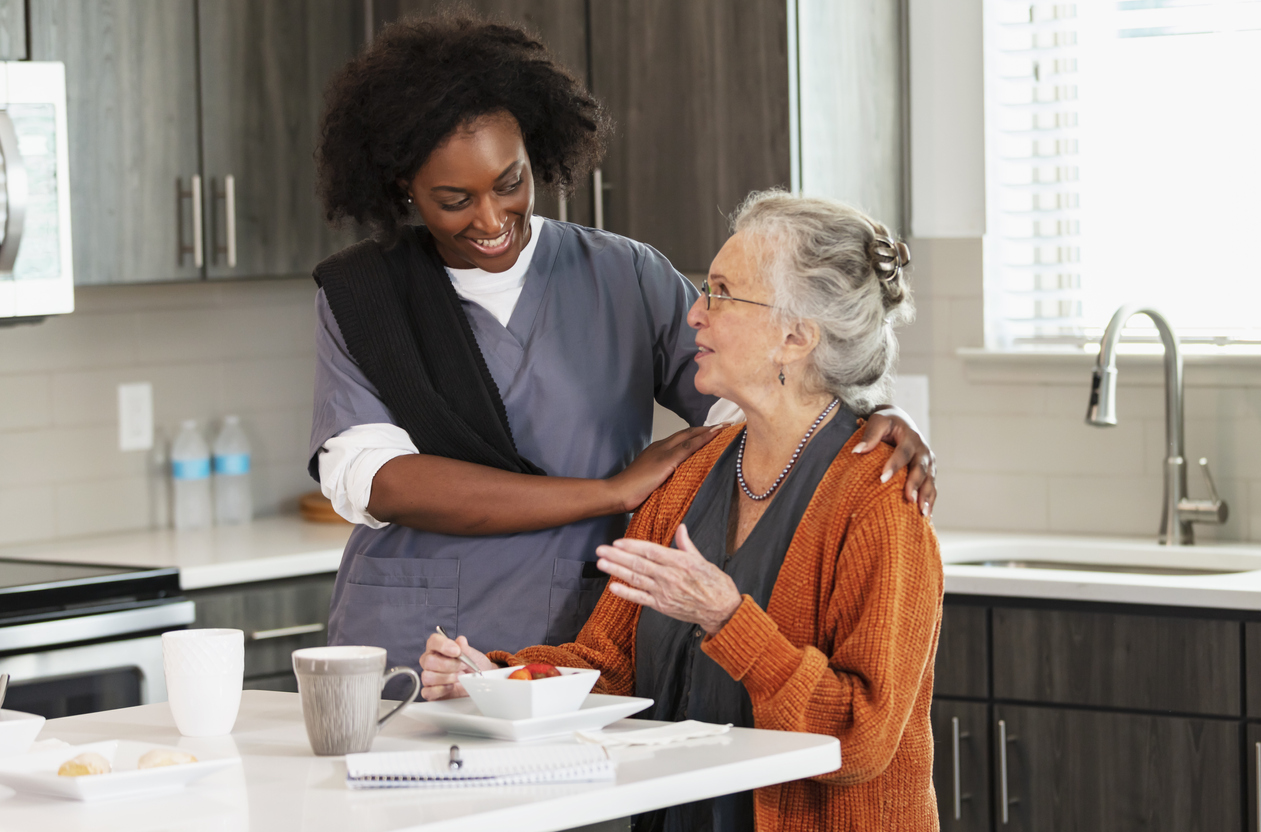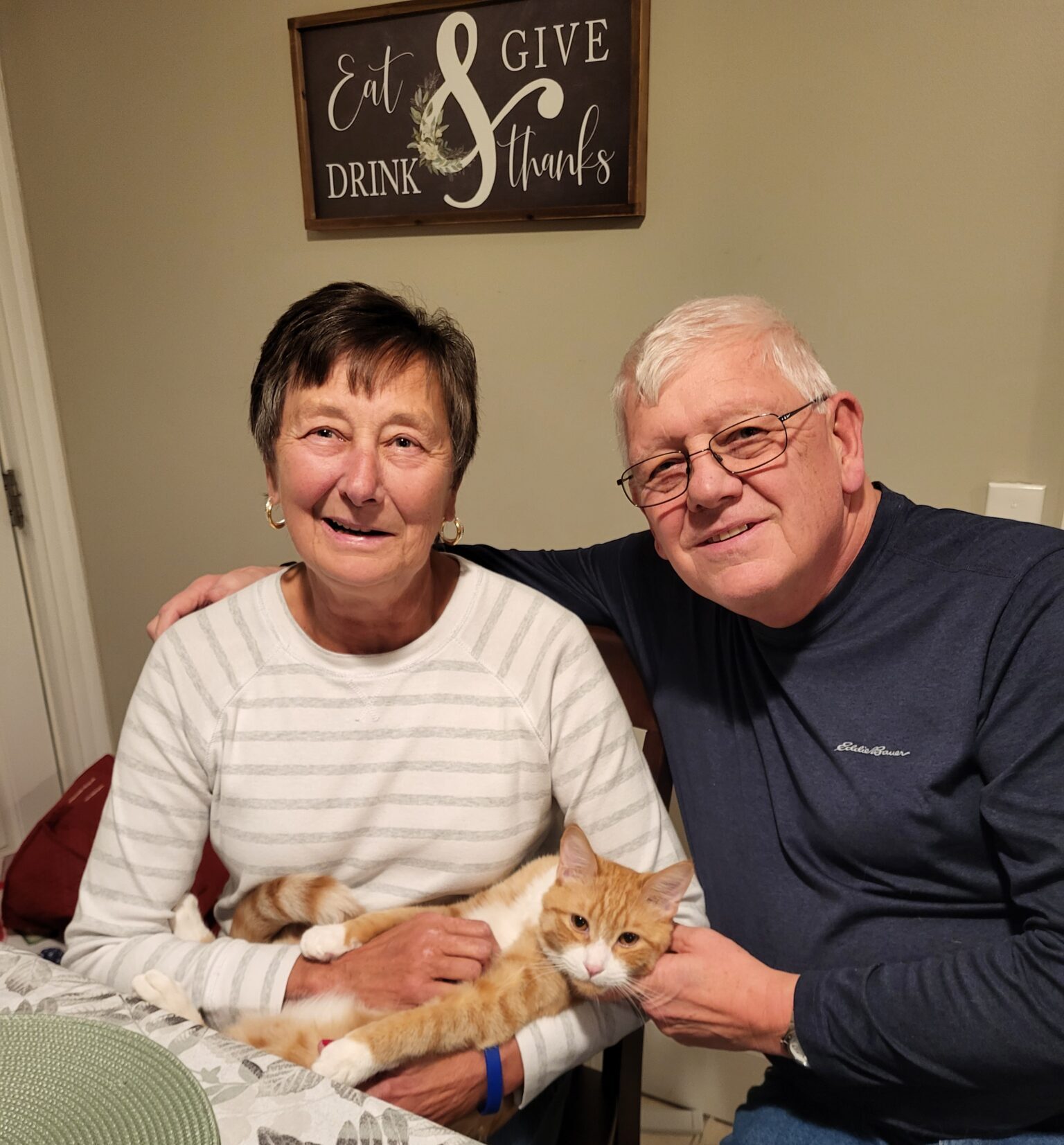When you’re caring for someone with dementia, you’re often navigating a world of unknowns. For caregivers in southeastern Massachusetts, HopeHealth’s Alzheimer’s and Dementia Program offers respite services, information, and emotional support — all for free. The program is open to individuals who live in the program’s service area and are affected by any form of dementia.
Here’s how the program is helping two families — and how it could help yours too.
> Connect with the Alzheimer’s Disease Assistance Program
Geoff and his mom, Janice: “It’s gotten her out of her shell”

Janice had always been outgoing and confident — a real go-getter. She tended to be right at the center of any community she was part of, first as a middle school and high school teacher, then, in “retirement,” as a top salesperson at Filene’s and Macy’s. For years after her husband’s death, she remained social and fiercely independent.
But in her late 70s, she began to withdraw. She invited fewer people around to visit. She ventured out less. The hardship and isolation of living alone seemed to catch up with her.
Her son, Geoff, and his aunt came up with a list of things Janice needed. At the top: consistent help at home. But where could they find a qualified professional — and on Janice’s fixed income, how could they pay for it?
Then, they stumbled on HopeHealth’s Alzheimer’s and Dementia Program. To their amazement, it was free. Thanks to a charitable grant, Janice even qualified for weekly visits from a private home health aide.
These days, every Tuesday and Thursday, an aide comes by to visit with Janice, helping her with household tasks and driving her to appointments. That one-on-one attention, plus moving into a senior community, has made a huge difference in her quality of life.
“The companionship is great for my mom. It’s gotten her out of her shell. She’s happier now, the mom I used to know,” says Geoff.
That’s not all. Because the respite care isn’t a financial strain, it’s made it possible for Geoff to budget for other important aspects of his mom’s well-being, like hiring a financial planner to reduce her debt.
> Related: From a dementia caregiver: 3 lessons that changed everything
Gary and his wife, Paula: “I get peace of mind”

Like most dementia caregivers, Gary had heard the advice before: “You need time for yourself.” But in the eight years since his wife, Paula, was diagnosed with early-onset Alzheimer’s disease, it was becoming increasingly hard to follow.
Until he learned about HopeHealth’s Alzheimer’s and Dementia Program. Like Geoff, one of the biggest draws was the help connecting with — and paying for — professional respite visits, either in-home or at a community adult day care.
Now, every week, a home aide named Maria comes by the house to stay with Paula for the afternoon. Gary plans his week around those four hours. It’s when he’ll actually make time to meet up with buddies, or to run solo errands. Sometimes, he’ll work on projects at home. While he’s sifting through paperwork or tackling the yard, he’ll hear Paula and Maria talking as they draw in coloring books together, or moving around the kitchen while Maria prepares a snack. It helps him breathe easier.
“I get peace of mind that Paula’s not alone. I’m able to focus on what I need to do without worrying,” he says. “You’re taking care of this person and their whole life is your responsibility. You don’t want to just pass them off to anybody. With the respite care, you know someone’s coming in that’s trained to handle dementia.”
The program also connects caregivers with Gary to HopeHealth’s free support groups. Gary’s been meeting with his dementia caregiver support group, virtually, for years. They were actually the ones to suggest the Alzheimer’s and Dementia Program. It’s one of countless pieces of advice traded among members in a safe, supportive space.
“This caregivers group is really the best thing,” says Gary. “We share a lot of information and experiences. And it gives you that once-a-week boost to know that you’re not the only one in this basket.”
> Related: Grieving before a death: Anticipatory grief and dementia caregivers
Here for your family, too: “It’s been crucial for us”
“I wish more people knew about the program, because it’s so important,” says Gary.
“It’s been crucial for us, and we’ve only used a small fraction of it so far,” agrees Geoff.
When their loved ones need more support, it’ll be waiting.
Along with respite services and caregiver support groups, HopeHealth’s Alzheimer’s and Dementia Program offers help coordinating care at every stage of dementia. The staff is trained in both the disease of dementia and in the community resources that can help, so they’re ready to connect caregivers with the referrals they need. They can also share one-on-one education, from tips for home safety to how to plan meaningful activities for someone with dementia. They stay in touch, checking in on the evolving needs of the whole family.
“The staff has been fantastic. They’ve always been really above board and super communicative,” says Geoff. When his mom needed to change home care agencies, the team handled everything, right down to the paperwork for her financial aid.
When he thinks back to first discovering the program, he sees it as a pivotal moment for his mom’s quality of life.
“Before, I didn’t even know that this type of program existed in the world. Now, because of it, we’re getting my mom back on track,” he says.

